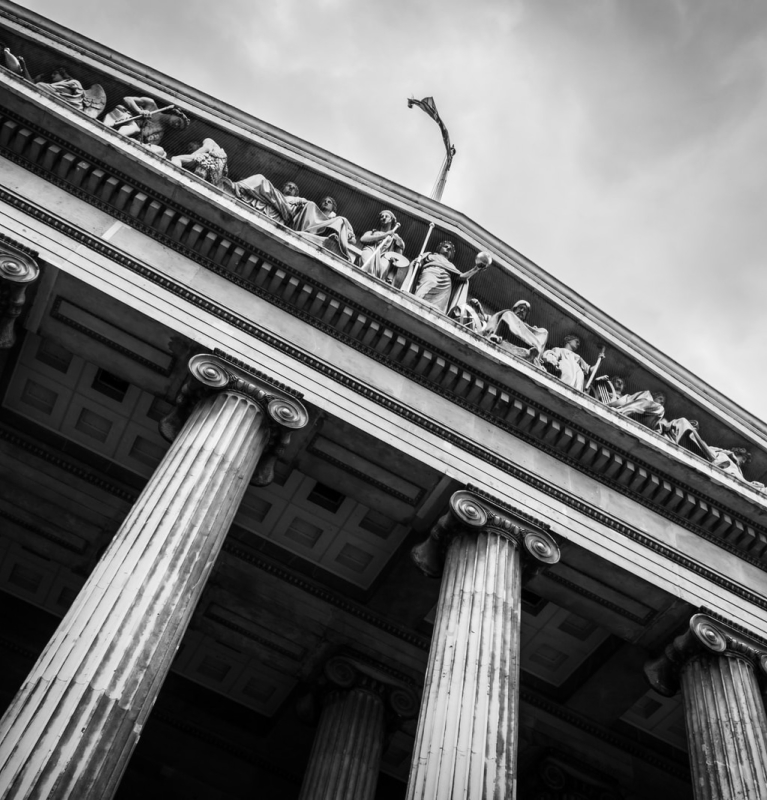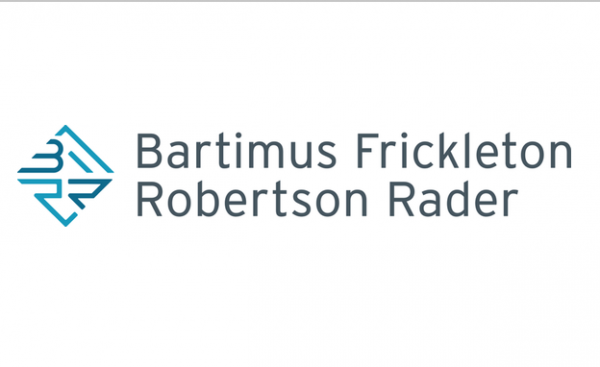
The Missouri Coalition for Roadway Safety found that alcohol-impaired driving contributed to 18% of all 2023 Missouri traffic fatalities. Not all impaired driving accidents are fatal, but many cause life-changing personal injuries and serious harm to the other drivers and passengers involved.
In cases like these, the intoxicated person can be held liable for damages caused by the crash. However, the driver and their insurance company are not the only source of compensation potentially available to the victim.
Missouri has a statute (statute 537.053) referred to as the ”dram shop law,” which allows accident victims injured by alcohol-impaired drivers to potentially hold commercial establishments accountable for serving alcohol to patrons who later cause impaired driving accidents.
This guide aims to explore the dram shop law, as these accidents can be life altering, and those affected have a right to fair compensation. Understanding dram shop liability claims and how they work is essential to protect the rights of victims.
What Is Dram Shop Liability?
The first step in understanding dram shop liability claims is to understand what a “dram shop” is. The Legal Information Institute defines a “dram shop” as a commercial establishment that sells alcoholic beverages. These establishments can include:
- Bars
- Taverns
- Restaurants
- Nightclubs
- Wineries
Dram shop laws hold businesses accountable for the role they play in serving alcohol to intoxicated individuals. When an impaired driver causes an accident, these laws allow the victim to seek compensation from the commercial establishment that served alcohol to the driver who later caused the crash.
In typical drunk driving cases, the intoxicated driver and their insurance provider are held liable and often provide compensation for the victim. However, dram shop laws extend that liability, allowing the victim to seek damages not only from the impaired driver but also from the business that negligently served them the alcohol.
Missouri’s Dram Shop Statute
Missouri utilizes a statute that outlines the principles for holding commercial establishments liable: Missouri Statute 537.053.
Missouri’s dram shop statute outlines that only vendors “licensed to sell intoxicating liquor by the drink for consumption on the premises” can be held liable. This statute does not cover liquor stores or stores where alcohol can be purchased, since the alcohol sold is not intended to be consumed on the premises.
Missouri has a high burden of proof regarding its dram shop statute. The “burden of proof” is the legal requirement that a party in a court case present enough evidence to prove their claim. As a result, it’s essential to work with an attorney who has a thorough understanding of drama shop liability claims and can navigate this complex legal process to secure the best possible outcome.
When Can a Commercial Establishment Be Liable Under Dram Shop Law?
To hold the commercial establishment liable under dram shop statutes in Missouri, there must be clear and compelling evidence that the establishment did either of the following:
1. Knowingly Served Alcohol to Someone Under the Age of 21
It has to be proven that the seller at a commercial establishment knew, or should have known, that the intoxicating drink was being served to a person under the age of 21 years.
2. Served Alcohol to Someone Who Was “Visibly Intoxicated”
It has to be proven that the seller at a commercial establishment served or over-served a visibly intoxicated person additional alcohol, after which that intoxicated individual caused injury to the victim. Being visibility intoxicated includes impairment shown by significantly uncoordinated movements or noticeable physical dysfunction.
Though the law does not provide specifics of what is considered “visible intoxication,” Missouri courts have recognized several factors. Examples may include:
- Slurred or incoherent speech
- Difficulty finishing thoughts or sentences
- Glassy or bloodshot eyes
- Stumbling, falling, or poor coordination
- Slow reaction time
It is important to note that while a person’s blood alcohol content (BAC) is relevant, it does not hold as determinative evidence of visible intoxication.
When Can a Commercial Establishment Not Be Liable?
A commercial establishment can not be held liable for a number of reasons. These include:
- If a third party who was not drinking at the establishment was found responsible for the accident, or if other factors were involved.
- If another patron purchased alcoholic drinks for the impaired driver and the establishment had no reasonable way of knowing who the drinks were for.
- If the establishment can prove they did not serve alcohol to the impaired driver, or that the driver was not visibly intoxicated at the time of service.
Establishing Clear Evidence
Proving a dram shop liability claim requires a comprehensive approach to gathering and presenting evidence. The victim of an accident where the dram shop statute may apply should always, firstly, contact an attorney as soon as it is safe and possible to do so.
Dram shop statute cases require knowledgeable legal analysis and a thorough investigation into the establishment to prove liability. This investigation extends to examining their policies, procedures, and employees’ training in regards to the responsible service of alcohol.
An attorney with an understanding of dram shop liability claims will guide victims through the process and collect evidence that can be considered “clear and compelling” in a court of law. Strong, convincing evidence is needed to prove an establishment is at fault under Missouri’s dram shop statute.

A challenging step can be finding the establishment where the alcohol-impaired driver was drinking. Some people may be unwilling to disclose that information. Once the establishment is determined, evidence can be collected.
Relevant evidence may include:
Witness Testimony
Witnesses can provide firsthand accounts into the behavior of the patron involved in the impaired driving accident. Their testimony may include signs of intoxication, as well as interactions with the commercial establishment’s staff—servers, bartenders, and others.
Obtaining testimonies from those who observed the patron can be vital, as these may provide evidence that the individual was visibly intoxicated and over-served, or potentially underaged and served.
Security Footage and Register Systems
Video footage in the establishment can provide insight into the individual’s behavior, including their interactions while being served, the amount of alcohol they consumed, and other potential indicators of intoxication.
Additionally, register systems can often track a patron’s order, documenting the number of drinks served and the duration of service. Examining security footage and register systems helps to build a victim’s case, as digital evidence can be collected and preserved before an establishment disposes of the records due to limited storage capacity.
Medical Records
It is important to collect all medical records after the events of an accident involving an impaired driver. These records help to outline the extent of the victim’s injuries and establish the severity of harm, which can further support the need for compensation.
Financial Records
Financial records can represent the victim’s further economic loss following an accident. These records may include medical expenses, lost wages, property damage, and more.
When you work with an attorney familiar with drama shop law, they can bring together many pieces of evidence to build a strong case, helping victims receive the compensation they deserve following an accident.
Damages and Deadlines in Missouri Dram Shop Statute Cases
In litigation, damages are the monetary compensation awarded to the person who has been wronged. In dram shop statute cases, these damages are considered “compensatory damages.” These can include:
- Lost wages
- Damaged property
- Emotional distress
- Medical expenses
- Pain and suffering
It’s important to note that there are statutes of limitations for filing dram shop claims in court. This means that the claim must be brought by a certain time or it may be barred regardless of its merit. Thus it is vitally to speak with a dram shop attorney in Kansas City immediately to ensure your rights are protected
Missouri lawyers with a deep understanding of drama shop liability claims are familiar with the process, making them an essential form of support for victims. Contacting an experienced attorney as soon as possible after an accident can be crucial for filing cases in a timely manner.
Working With Bartimus Frickleton Robertson Rader
Every case in litigation is unique, posing its own challenges. Navigating these complexities with Missouri dram shop statute is a daunting task, but seeking out the right guidance can help secure justice and adequate compensation.
At Bartimus Frickleton Robertson Rader, we are dedicated to providing compassionate and expert representation. We understand the importance of guiding victims through every step of the legal process and are willing to fight tirelessly to ensure their rights are protected.
Representation goes beyond achieving a legal outcome. It’s also about being a source of comfort, compassion, and understanding for victims and their families during a difficult time. Those who have been affected by alcohol-impaired driving deserve reparation for the losses they or their families have incurred.

Defend Your Rights With Missouri’s Dram Shop Statute
If you or a loved one has been injured in an accident because of impaired driving, it is important to seek legal guidance quickly. Time is of the essence in building a strong dram shop liability claim, as crucial evidence may be lost forever if not timely preserved.
Bartimus Frickleton Robertson Rader is a trusted name in personal injury cases, and we are dedicated to delivering answers, holding the appropriate parties accountable, and seeking justice for victims. By understanding dram shop liability claims, our team can help victims receive the compensation they deserve, removing some of the financial strain as they focus on recovery.
Contact an attorney or call (913) 266-2300 to begin a conversation with a member of our team.
The above is not intended to be legal advice. Each individual case is different and must be analyzed on its own set of facts and circumstances. If you believe you may have a case, it is critically important that you timely contact a lawyer to ensure your rights are protected.


